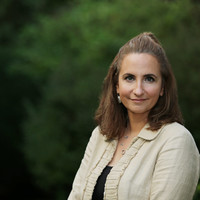If the mere mention of the letters "CRT" turns you from a mild-mannered person into a frothing green monster, know that you are not alone.
For I, too, am now triggered into an Incredible Hulk-like transformation whenever I hear or read about CRT, or "critical race theory," for those of you who've been blissfully absent from our national conversation lately.
You might ask, "What, exactly, is critical race theory?" And that would be an excellent and thus-far-poorly answered question.
If you listen to conservatives (particularly those seeking election to public office), it's a deranged effort to lower white kids' self-esteem.
If you listen to liberals (particularly those who like to fact-check viral tweets), it's a postgraduate legal theory about systemic racism that never creeps into public education, in any form.
The source of my rage is the infuriating liberal response to conservative criticism of CRT. Liberals get sucked into definitional arguments and name-calling, letting the wedge issue do its work. Instead, let's talk about this: We don't want to raise racist kids.
Unless you are an objectively bad caregiver, you're looking for ways to encourage kindness, empathy and fairness. You want children to view others as worthy of respect — no matter their skin color.
The problem, though, is that for decades, parents and caregivers of white children have tried to accomplish that by avoiding talking about race. We've done it with the best intentions, trying to raise our children to be "colorblind," but research has shown that not discussing race doesn't help kids overcome their biases.
Instead, we need to explain to them that no, they're not blind — people do have different skin tones, but they should not make value judgements based on those skin tones.
It's seemingly simple but parents often find it challenging, either because they don't know what to say or because they're harboring racial resentment of their own.
But schools cannot encourage mistreatment of some of their students at the benefit of the innocence of the others. Educators must discuss race.
(Too) many years ago, I attended school in New Orleans, at a school with a racially and economically diverse student body and teaching staff. My fifth-grade teacher, Mrs. Hall, was a robust and cheerful woman, and I still vividly remember the sadness in her voice as she described to us how, when she was our age, she had asked her mother to go into a diner downtown.
"No, sorry, honey," she was told. "They don't serve Black people."
When I got home, I ran to ask my mother:
"Is that true? Did they really not let Black people eat in some restaurants?"
My mom nodded, and I cried, not for Mrs. Hall but for a girl my age, who'd been heartbroken years before.
Now, did Mrs. Hall indoctrinate me? Should she have left that conversation to my mother, who had never previously discussed race? Should I have had interactions with other kids in my class without knowing anything about their lives as Black people?
That's not to say that the topic of anti-racism isn't complicated.
Almost all of us have been in diversity and inclusion training sessions of questionable value, where no one's mind was opened and no one's opinion changed. And we've all heard tales of overreach, cases where divisions were sowed instead of healed.
Liberals do no one any favors by failing to acknowledge that there are honest complaints about some diversity, equity and inclusion efforts. Not everyone who questions the efficacy or fairness of these efforts is a racist.
We must move past all the arguing over definitions, and the parsing of what is and what isn't CRT, into the important questions: Is anti-racist training good? Does it work?
Because ignoring race shouldn't (and can't) be the answer.
To learn more about Georgia Garvey, visit GeorgiaGarvey.com.
Photo credit: Wokandapix at Pixabay






View Comments